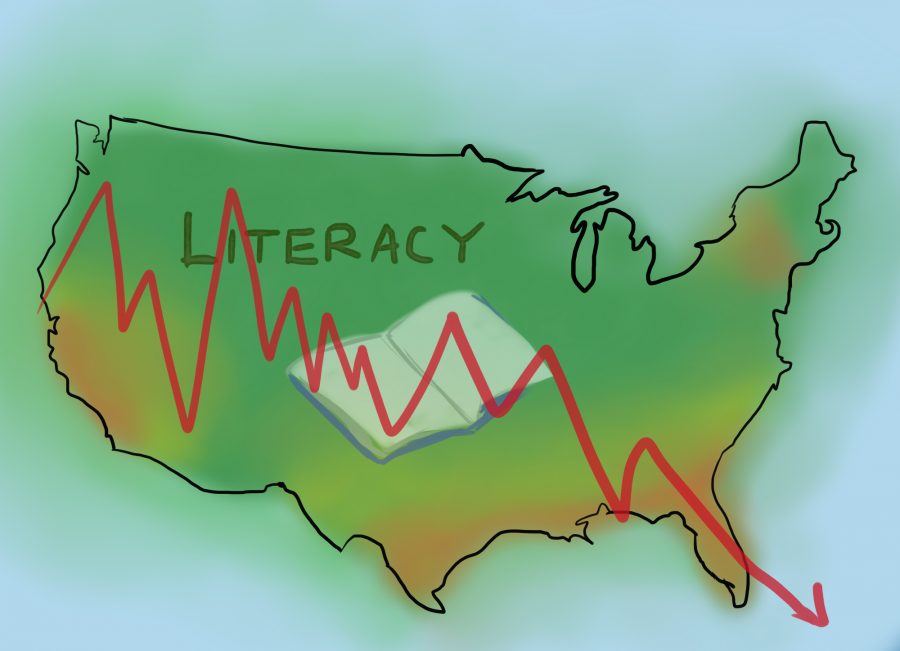Wait…Where Is That, Again?
April 7, 2017
Can you pick out Ukraine on a map? Afghanistan? Iran? Israel? If yes, congratulations: you are better at geography than the vast majority of Americans.
In a survey of about 2,000 citizens, only one in six could find Ukraine, and a National Geographic poll indicated that less than a quarter of college students could correctly identify all three Middle Eastern countries. Why, exactly, are Americans ‘geographically illiterate’?
Geographic illiteracy in the U.S. is a long-standing trend. On the 2014 National Assessment, nearly three-fourths of eighth graders scored below proficient in the subject—just about the same result as in 1994. Similarly, in a 2002 international survey of geographic knowledge, the U.S. came in second-to-last worldwide. 18 to 24-year-olds in Canada, Great Britain, Japan, and several other countries outperformed their American counterparts on the survey, which tested knowledge about geography and world affairs. Only Mexico scored lower by a slight margin.
Poor performance can be at least partly attributed to the fact that geography is often neglected in American schools. A 2015 report found that the majority of social studies teachers spend ten percent or less of their time on geography, and most schools do not mandate geography courses as graduation requirements. The heavily tested subject areas of reading, math, and science tend to hog the curriculum, leading to geography programs being downsized or eliminated altogether.
However, geographic illiteracy is more likely symptomatic of another troubling phenomenon: Americans’ lack of engagement in global affairs. Americans are often accused of being willfully ignorant about international events, instead adopting a US-centered worldview. For example, in the aforementioned National Geographic survey, most respondents overestimated the population of the US, with 30% putting it between one billion and two billion (it’s actually just under 300 million), and almost three-fourths of survey-takes chose English as the widest-spoken native language (it’s Mandarin). Such responses may indicate an overblown perception of American prominence and a resultant lack of interest in learning more about the rest of the world.
Therefore, geographic illiteracy is less pressing of an issue than the broader trend it seems to signify. Lack of global knowledge is particularly worrisome in light of the recent “America first” sentiment sweeping the nation. The truth is, in our increasingly globalized world, America cannot simply close itself off—our future is inextricably linked with other countries’ futures, rendering geography an essential skill in today’s society. After all, understanding of foreign conflicts hinges upon being able to place them in context—which means being able to place them on a map.
As a result, American schools should allocate much more time not only for geography but also for current events and international politics. Mrs. Raphaels, social studies teacher at Ridge, feels that “schools should emphasize global civics, rather than geography. Careful, thoughtful examination of global issues requires a good understanding of geography and political borders. So, if we, as a society, value the international community more, we will attend to the study of international relations and global citizenship more carefully, and will necessarily be better able to read a map.” Putting geography in the context of global issues renders the subject more relevant and accessible to students, thus making them more likely to be able to identify foreign countries and their locations.
“When I think of geography, I think about labeling endless maps in seventh grade,” relates Josie Kang ’19. “But geography is actually about a lot more than that—it’s also about global dynamics and international relations. And once you get interested in all that, basic geography becomes pretty intuitive.”
On the whole, global civics and international issues should play a much greater role in American schools’ curricula. As students enter the real world and begin to vote, being informed about global affairs becomes incredibly important—arguably more so than knowing how to differentiate an equation or identify a participle phrase.
In the words of Mrs. Raphaels: “U.S, prosperity is dependent upon global prosperity. Therefore, it is in our best interest to know what is going on in the rest of the world in order to elect policy-makers that will make sound foreign policy.”
Rather than aiming for flawless recall of countries and their locations, the goal should be to instill students with a working knowledge of the global layout. So the next time someone mentions the war in Syria, famine in Nigeria, or the elections in the Netherlands, no one should scramble for Google Maps.

